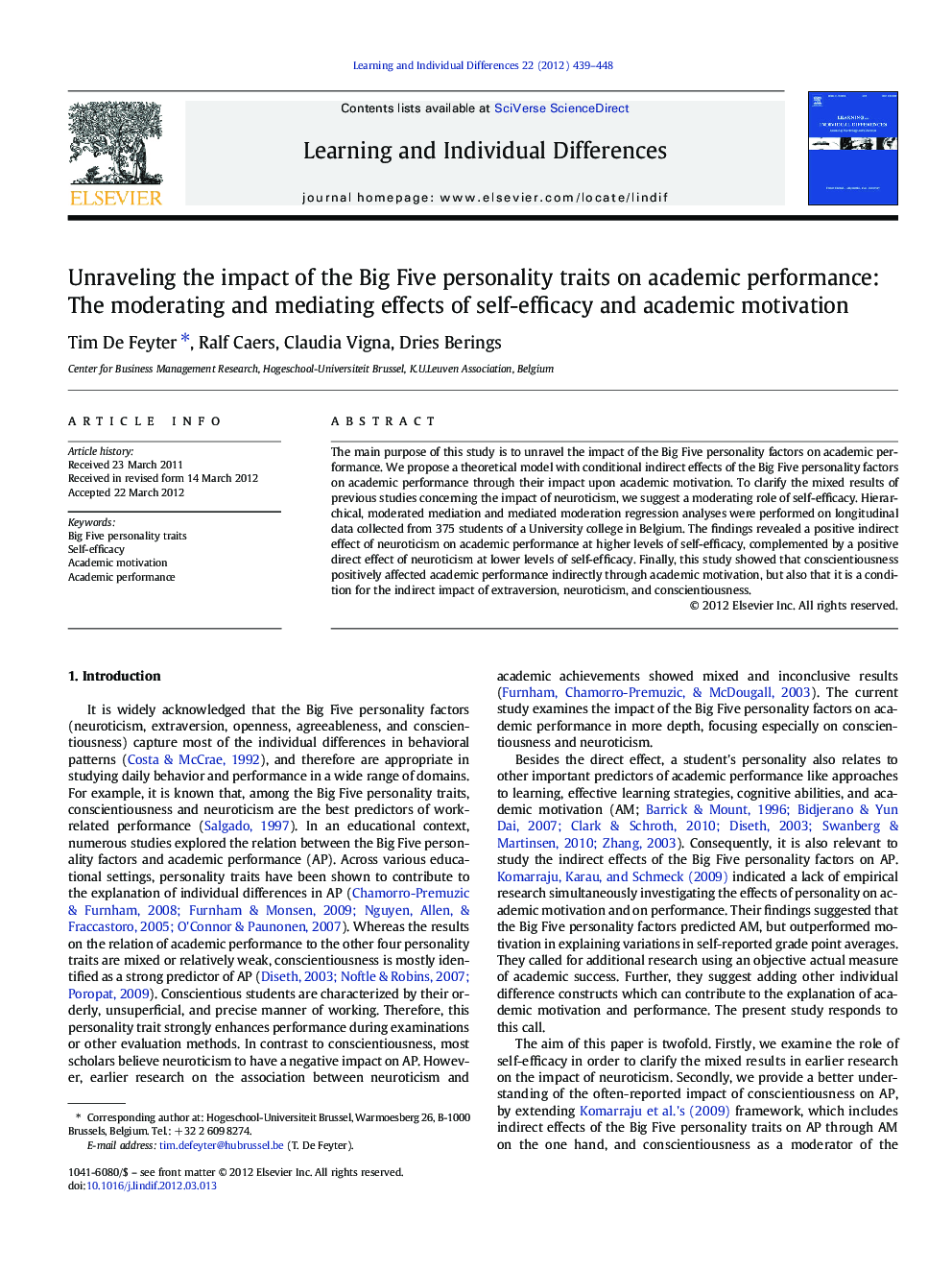| Article ID | Journal | Published Year | Pages | File Type |
|---|---|---|---|---|
| 365070 | Learning and Individual Differences | 2012 | 10 Pages |
The main purpose of this study is to unravel the impact of the Big Five personality factors on academic performance. We propose a theoretical model with conditional indirect effects of the Big Five personality factors on academic performance through their impact upon academic motivation. To clarify the mixed results of previous studies concerning the impact of neuroticism, we suggest a moderating role of self-efficacy. Hierarchical, moderated mediation and mediated moderation regression analyses were performed on longitudinal data collected from 375 students of a University college in Belgium. The findings revealed a positive indirect effect of neuroticism on academic performance at higher levels of self-efficacy, complemented by a positive direct effect of neuroticism at lower levels of self-efficacy. Finally, this study showed that conscientiousness positively affected academic performance indirectly through academic motivation, but also that it is a condition for the indirect impact of extraversion, neuroticism, and conscientiousness.
► Overconfidence at high levels of self-efficacy for emotionally stable students. ► Positive effect of self-efficacy at lower levels for neurotic students. ► Positive effect of self-efficacy at higher levels for emotionally stable students. ► Conditional indirect effect of conscientiousness and extraversion on performance. ► High level of conscientiousness is condition for indirect effect through motivation.
